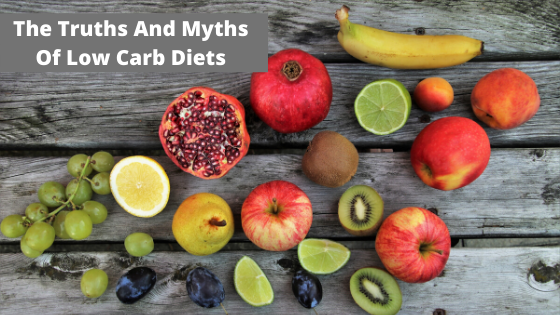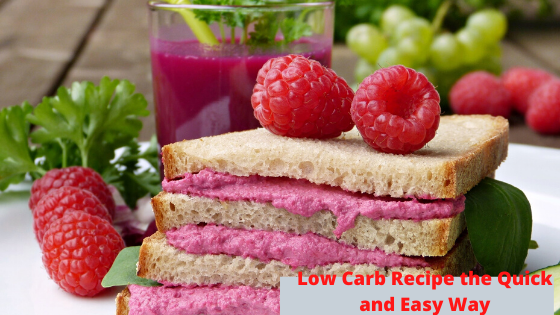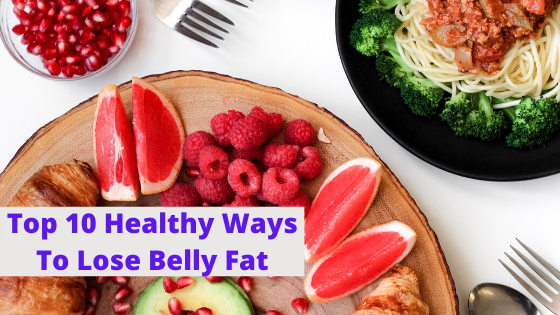The Truths And Myths Of Low Carb Diets
With all the diet programs that are published and advertised, the one that has received the most negative publicity and given a bad rap is the low carbohydrate diet, all you hear is "low fat is the way to go, stay away from fats, that's the answer", that's a bunch of bunk.
I feel that low fat diets are worthless and can cause more harm than good, ever since the low fat craze started in the late 1960's the obesity rate has grown in each decade since. That's why I'm writing this, the majority of the so called experts in the nutrition and diet industry have declared the low carb high protein diet dangerous. I have researched this extensively, have given seminars and talks regarding this, our radio show dedicated a segment on this and most importantly, I have done this successfully and guided others successfully with this style of dieting.
The obesity rates among Hispanics and Blacks has skyrocketed, the incidence of diabetes among these groups has also skyrocketed, the main reason being their diets consist mainly of carbohydrates and fats, the two don't mix well together, protein and fats do mix well together. Watching your intake of carbohydrates is very important for weight loss. Low carb diets or diets that teach food combining are very effective in weight loss, OK now for the myths.
Myth #1) The low carb diet is dangerous, the truth is that it is not, and has been proven over the years to be safe and extremely effective, Dr Atkins gets credit for this type of diet, but he was not even close to being the innovator, he just brought it mainstream, this brings us to myth #2.
Myth #2) The truth is the father of low carb, high protein dates back to 1863, William Banting of England who wrote a little booklet titled "Letter on Corpulence Addressed to the Public", William Banting is considered the father of low carbohydrate dieting. He proved over this over years helping people lose weight without any side effects.
Myth #3) Low carbs, high protein, and high fat raises cholesterol, the truth is it actually lowers cholesterol. For one year, researchers at the Veterans Affairs Medical Center in Philadelphia followed 132 obese adults randomized into two groups. One restricted carbohydrate intake to less than 30 grams per day (low-carbohydrate diet); the other restricted caloric intake by 500 calories, with 30 percent of calories from fat (conventional diet). Eighty-three percent of the study group had diabetes or other risk factors for heart disease.
The Truths And Myths Of Low Carb Diets
In the low-carb group, triglyceride levels decreased more and HDL ('good') cholesterol levels decreased less than in the low-fat group. (High levels of triglycerides, a fat in the blood, are associated with heart disease.) People with diabetes on the low-carb diet had better control of blood sugar.
In another research study published in the Annals of Internal Medicine involved 120 overweight people followed for six months. Researchers from Duke University found that participants on the low-carb diet lost an average of 26 pounds, compared to an average of 14 pounds lost by those on the low-fat diet The low-carbohydrate group had more beneficial changes in blood triglyceride levels and HDL cholesterol levels than the low-fat diet group. In this study, the low-carb diet groups also received vitamins and other nutritional supplements.
Myth #4) The low carb diet will raise my blood pressure, the truth is with lower LDL levels and VLDL levels, blood pressure levels drop. Lead author Dr William S. Yancy Jr, an associate professor of medicine at Duke, said their findings send an important message to people with high blood pressure who are trying to lose weight:
"If people have high blood pressure and a weight problem, a low-carbohydrate diet might be a better option than a weight loss medication," said Yancy, who is also a staff physician at the VA center in Durham where the study was conducted.
Myth #5) You need carbohydrates or glucose for brain function, the truth is if you are on a hardcore low carb high protein diet, where carbohydrates are non-existent, you are on what is called a Ketogenic Diet. When on such a strict diet, your body produces ketones in the absence of carbohydrates, then converts the ketones into a form of glucose that enables proper brain function. This brings us to the next myth.
Myth #6) You cannot eat any carbs on a high protein diet. Using the Atkins diet as an example, Atkins himself said on the Larry King show, "You can eat all the carbs your body allows as long as you do not gain weight". What he was talking about was when we reach our desired weight you then can add as many carbs to your diet until you start gaining weight, that is your threshold, for some people it is 50 grams a day for others it's 200 grams or more.
Myth #7) I will gain all my weight back if I stop my low carb diet. That is totally false, it does not matter what diet you choose, if you are successful in your weight loss and then stop your diet, 9 out of 10 times you revert back to your old eating habits, and start eating junk and over indulge, then of course you gain weight back.
Myth #8) Eating protein makes you fat, totally false, protein actually raises your calorie burning metabolism by as much as 30% over carbohydrates. When proteins are consumed, your body must digest and break them down into amino acids, this takes energy and plenty of it, this actually helps you lose weight not gain weight.
The Truths And Myths Of Low Carb Diets
Myth #9) High protein diets include fats and fats are bad for me. Fats in the absence of carbohydrates burn more efficiently, and do not clog your arteries. As the studies show LDL's (low density lipoproteins) which are the artery cloggers, are lowered. The HDL's which are the good triglycerides are raised even though your fat intake is increased, that as mentioned above is attributed to low carb intake. Remember when I mentioned that carbs and fat don't mix, your body cannot efficiently break them down together, your liver is over burdened ends up converting the carbohydrates into fat, unless of course you are exercising like crazy.
Myth #10) I will not have any energy with the low carb diet, this is totally false, unless you are marathon runner or bodybuilder. When you consume small amounts of carbohydrates, your body needs another source of energy, when glycogen levels are gone, your body starts using fat for energy and combustion. If you are extremely active, then it will take about 2-3 weeks, after that your body is acclimated to your new eating habits and adjusts, energizing you as before. If you are involved in a endurance sport, then of course you need extra carbs to be competitive. If you are an athlete or workout extensively, then you probably would not be dieting anyway, and a low carb high carb is a mute point.
I hope this article has answered some of the questions or concerns you might have on high protein dieting. In my next article I will talk about supplementation when using this diet and also touch on which type of protein is best for you and how to combine foods effectively.





Comments
Post a Comment